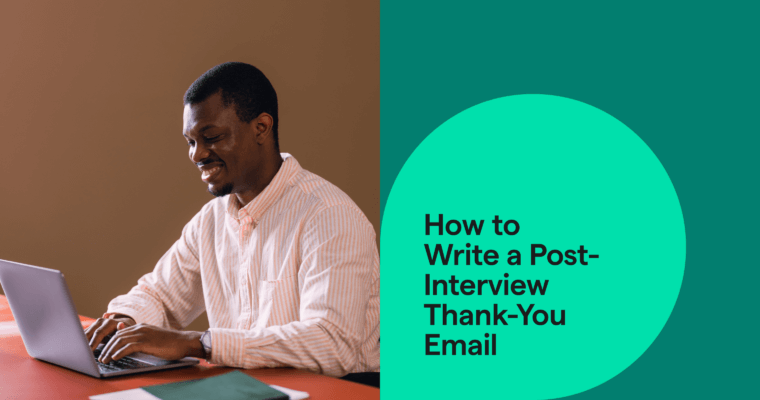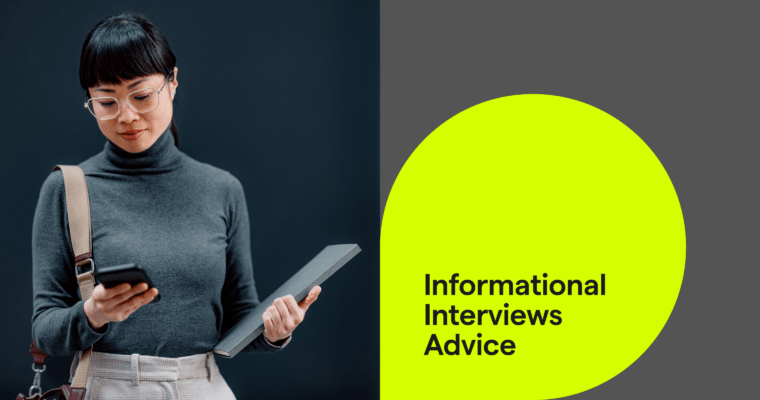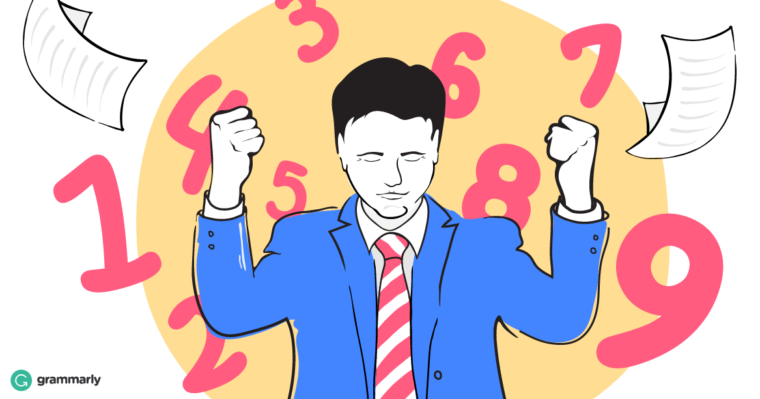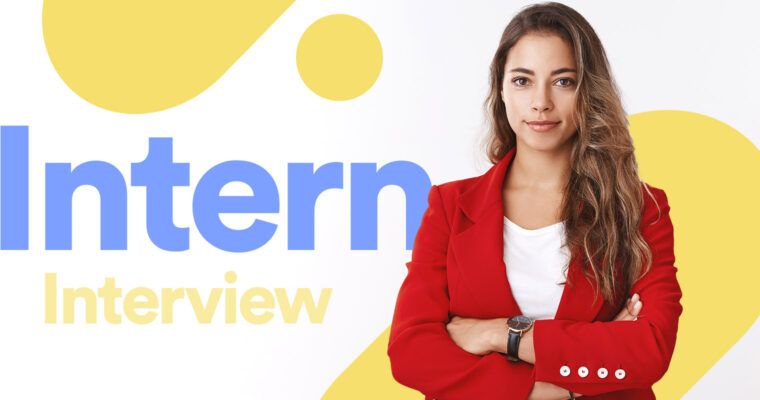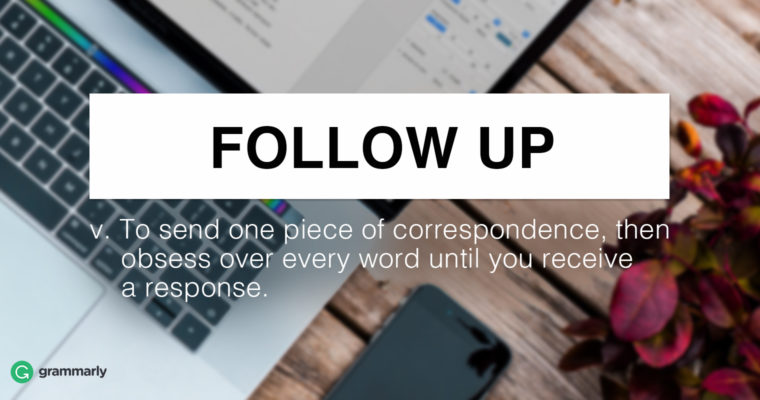
You want this job! It’s a perfect fit for your skills and you know you’d rock it. You send out an impressive résumé and cover letter and you’re thrilled when you’re offered an interview. You rehearse answers to the questions you might be asked, and by the time you meet with the hiring manager, you’re able to dazzle her with your articulate and well-thought-out responses. You leave the interview knowing you’ve nailed it.
Now what?
The satisfaction of having scored and then given a great interview only lasts for so long before the anxiety of waiting for an answer sets in. Should you just sit by the phone and hope for the best, or should you follow up? In a competitive job market, giving a good interview isn’t always enough. Sending an awesome follow-up email can help you stand out from the crowd. Let’s take a look at a couple of the times when you should send a follow-up, consider why following up is important, and then dig into the nitty gritty of how it’s done.
Thank-You Email After the Interview
The interview thank-you is a time-honored tradition. Although some interviewers don’t find thank-you letters necessary, sending one is still a good idea, especially if it helps you demonstrate why you’re perfect for the position.
How to write it
Most interview thank-you letters say the same thing: thanks for your time, thanks for the opportunity, and hey, I really want this job! In order for yours to get attention, you’re going to have to change it up.
When you return home after your interview, and while it’s all still fresh in your mind, take a few notes. Did you home in on any topics that seemed particularly important to the interviewer? Was there something she said that made you feel excited about the prospect of working for this company? Jot them down, identify your key takeaway, then reflect it back in your thank-you letter. Here’s an example:
Thanks for the lively chat today. After meeting with you, I’m more excited than ever to continue exploring the content strategies we discussed, ideally as content director at XYZ Company.
In the meantime, I wanted to mention that my recent article on AwesomeSite.com has earned over 48,000 social media shares in the past couple of days. It’s a solid example of the type of credible content you said that XYZ wants to publish.
That article’s success also serves as a reminder to me that I’m ready to jump into my next challenge! I’m eager to take our conversation further.
Sincerely,
Joe Jobseeker
Of course, this is just an example. Your own thank-you email shouldn’t be templated. Show the hiring manager that you’re willing to put in the effort to stand out from the crowd.
It sounds contrary, but the main purpose of your thank-you letter isn’t to express gratitude. Think of your letter as another opportunity to show the interviewer what you have to offer beyond good manners.
Thank-you letters can accomplish other things, such as clearing up a misconception or adding some information the interviewer may need to make a hiring decision. Beyond.com has more advice on writing thank-you letters to suit different circumstances.
Interview Follow-Up Email to Check In After No Response
It’s not you, it’s them. Companies these days are taking longer than ever to make hiring decisions. If you expected to hear back, and you’ve made a good impression so far, a follow-up email after an interview to check in on the hiring process can help you stand out. But there’s a caveat. Just checking in isn’t enough.
How to write it
People making hiring decisions see “just checking in” emails all the time. Many of them add little value to the process. When you write to tell a hiring manager “I’m just checking in,” what she’s hearing is “hurry up, already!” or maybe even “I’m desperate!”
It’s not enough to say “I still want this job.” No one ever scored points by jumping up and down, waving their arms and shouting, “Ooo! Pick me! Pick me!” Just like your thank-you note, your follow-up email needs to add something substantial to the conversation.
Remember those notes you took after your interview? They came in handy for your thank-you letter and they’re going to be helpful now. You identified some key topics and issues that are important to the interviewer and the company. Now, do a little research and demonstrate that you have not only expertise but also a deep interest in those topics. Here’s another example:
When we last chatted, you said that you hoped to make a hiring decision about XYZ’s content director position by this time. We haven’t had a chance to connect again, so I thought I’d expand a bit on our conversation.
Your ideas for creating more shareable content for the XYZ blog are spot on! I noticed Alex Expert echoing your thoughts on his blog a couple of days ago and thought you might like to check it out. Did you notice what he had to say about SEO best practices and Google’s latest algorithm update? There are some opportunities here that I’d love to talk to you about.
I’m confident that my strong writing background and understanding of SEO would make an impact at XYZ, leading to more social shares, pageviews, and engagement. I’d welcome the opportunity to dig in and make some exciting things happen!
Sincerely,
Joe Jobseeker
In this example, Joe isn’t nagging for a response. Instead, he’s adding value to an existing conversation and making himself memorable in the process. He’s treating Sarah as someone he values building a business relationship with. Winner!
6 Quick Tips for Writing a Perfect Follow-Up Email After an Interview
It goes without saying that your interview follow-up needs to be as perfect as you can make it if you want to land the position. Although a good follow-up may not help much if your interview didn’t go well or you and the hiring manager didn’t click, a bad one could hurt your chances. Here’s how to avoid any major gaffes:
-
- Proofread, proofread, proofread. Before you hit send, make sure your email is error-free. May we recommend the help of a handy AI communication assistant?
- Get some feedback. If possible, have someone with business savvy read your email and give you feedback.
- Keep it positive. Use a tool like Tone Analyzer to make sure your email conveys the right emotions. (Just for fun, run our examples through the analyzer!)
- Keep it somewhat formal. It’s usually best to begin an email with “Dear Bob” rather than “Hi Bob.” Sign off with “Sincerely.” Use your judgment—rule-breaking startups and companies with laid-back cultures are exceptions to these rules.
- Keep it short. Hiring managers get a lot of email. Stick to the subject and try to make an impact with two or three tightly written paragraphs.
- Proofread again! Seriously. Did you check that you spelled the hiring manager’s name and the business name correctly? Careless mistakes could cost you the job, so be meticulous.
Have you used any unique follow-up strategies that helped you land a job? We’d love to hear about your experiences in the comments.


